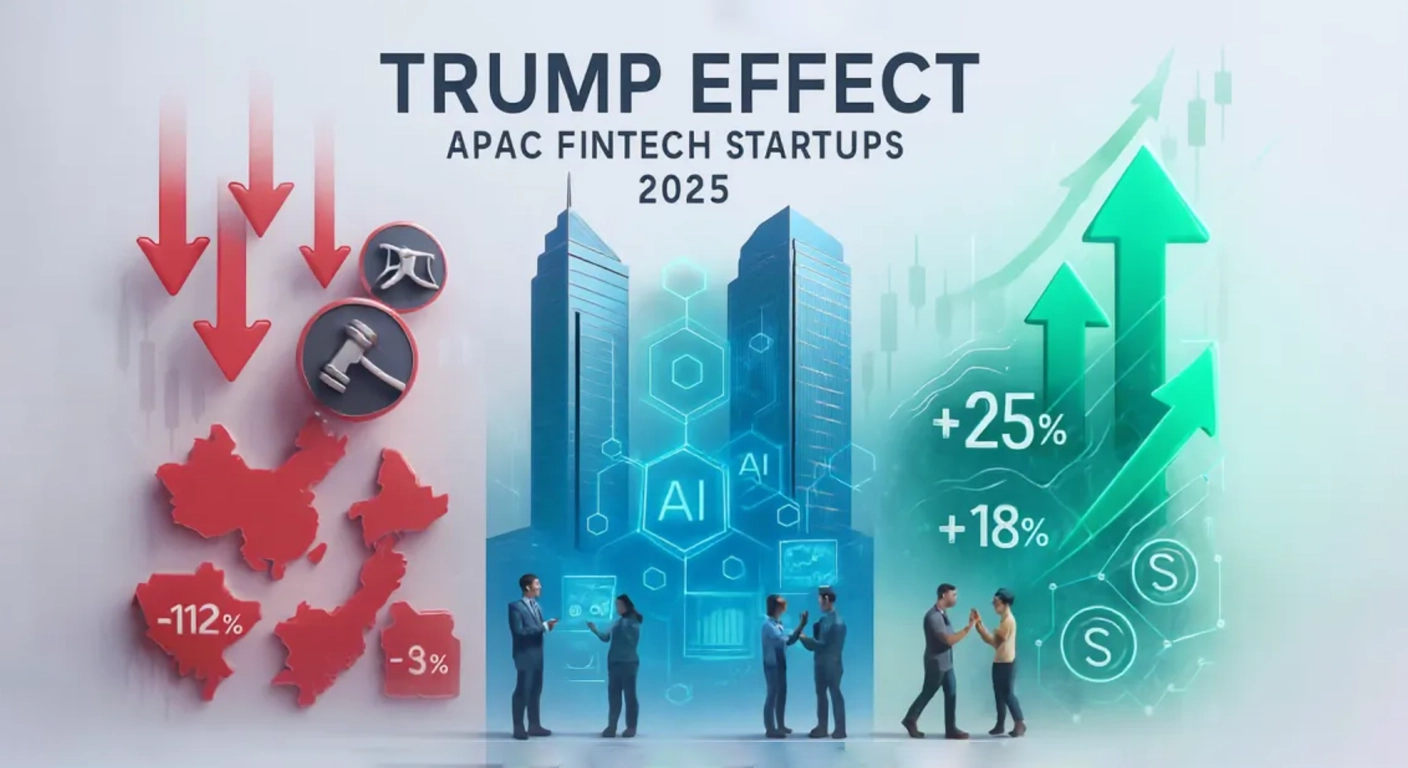With May 2025, the financial market scenario continues to change and evolve dynamically in the world. For startups and tech investors, it is always important to get updated on the trends to reap investment opportunities as well as create business strategies accordingly. In this report, based on the insight of financial analysts, financial advisors, and the investors, the global financial market trends will be analyzed and great insights will be provided for the startups and the tech investors.
I. Global Economic and Financial Market Overview
Macroeconomic Environment
By 2025, the world economy presents a rich and varied picture. While inflation and interest rate volatility strike the U.S. and European developed economies, the developing markets present robust growth prospects. The April 2025 World Economic Outlook report by the IMF states that global economic growth will be fairly stable, with the developing markets making a major contribution to growth. The monetary policy decisions of the U.S. Federal Reserve continue to be in the spotlight, as they have the potential to affect cross-border capital flows and market stability. The European Central Bank, on the other hand, is monitoring inflation rates closely and making the corresponding monetary policy adjustments. Japan’s economic rebound is on the horizon, while the Bank of Japan is gradually inching towards policy normalization.
Financial Market Performance
- Equity Markets: Global equity markets have recorded significant regional and sectoral diversity. The US stock market remains the world’s leader in equity markets, with technology stocks still dominating market performance. During the first quarter of 2025, top US stock indexes such as the Nasdaq Composite Index appreciated around 10%, a reflection of investors’ faith in the growth potential of the technology sector. European stock markets have been fueled by the eurozone’s economic recovery and geopolitical factors. The UK FTSE 100 Index and the German DAX Index have experienced fluctuating trends but are overall relatively stable. Emerging market equity markets are good prospects, with India and Southeast Asia being of particular interest to increasing numbers of international investors due to their high rates of economic growth and demographic dividends.
- Bond Markets: Global bond markets have been influenced by interest rate policy and inflation expectations. Yields on U.S. Treasury securities followed the path of Federal Reserve interest rate tightening as well as economic conditions. The 10-year U.S. Treasury yield bottomed out and came to rest at about 4% by the beginning of May 2025.The European and Japanese bond markets have also experienced the yield adjustment process.Investors are increasingly concerned with bond market risk and return, shedding portfolios by altering the proportion of central government bond, corporate bond, and other fixed income assets.
- Foreign Exchange Markets: The dollar’s exchange value has been influenced by Federal Reserve policy and global economic conditions. During the early part of 2025, the U.S. dollar index has fluctuated but remained generally within a relatively stable range. The euro, yen, and other major currencies have fluctuated moderately to slightly against the dollar. Emerging market currencies have been shaken by external debt risk and capital flows but have remained resilient in a growth and reform environment.
II. Key Trends in Global Financial Markets
Digital Finance and Fintech Innovation
Digital finance is still redefining the global financial scenario. Mobile payment technologies have grown at a faster pace, and mobile money services have become progressively widespread. GSMA’s report in April 2025 cites that at the end of the year 2024, 336 live mobile money services operated across the globe, a marginal increase from the 334 registered in 2023. The volume of transactions in mobile money increased by 12% during 2024, while cross-border remittances through mobile money increased higher than other types of ecosystem transactions. Mobile money-facilitated international remittance transaction volumes grew by 22% to $534 billion. Fintech growth has prompted financial institutions to speed up digitalization.Artificial intelligence, blockchain, and big data technologies are being utilized to assess risks, make investment choices, and settle payments, enhancing financial service efficiency and cost reduction. For technology startups, the fintech segment has much potential, with payment, lending, and wealth management being highly attractive for venture capital investment.
Sustainable Finance and Green Investment
Sustainable finance is more and more of a global trend. ESG issues are more on the radar of today’s investors when deciding on investments. Global sustainable investment assets totaled $35.3 trillion in 2023, a 12% increase from 2021 levels, based on a report issued by the Global Sustainable Investment Alliance in 2025.Governments and regulators across the globe are implementing policies to drive green finance, including green bonds and climate financing frameworks. Financial institutions are working actively to create green financial products and services based on market demand. To tech start-ups, there are opportunities in clean energy, energy storage, and other green technologies where growth and innovation possibilities can attract sustainable investors.
Cross-Border Investment and Global Asset Allocation
International economic integration propels cross-border investment and international asset allocation. Technology investors are looking beyond their borders to pursue high-growth investment opportunities in emerging markets. Startups are also turning towards international capital markets for funding and collaboration. Cross-border investments, however, come with risks like currency volatility and geopolitics. Investors must carry out substantial research in target markets, evaluate risks, and frame diversified investment plans. Financial experts and analysts have a key role in guiding investors through global asset allocation by presenting market trends and investment guidance.
Regulatory Changes and Compliance Requirements
Regulations in financial markets are still changing to address market trends and risks. Regulatory agencies across the globe are enhancing regulation of fintech, cryptocurrencies, and other new financial industries to safeguard investors’ interests and ensure financial stability. For instance, the European Union’s Digital Markets Act and other regulations have imposed more stringent requirements on the operations of tech companies and data privacy. Technology startups and investors need to keep abreast of regulatory developments to maintain compliance and mitigate legal exposure. Financial analysts can help companies understand regulatory needs and build compliance strategies.
III. Role of Financial Advisors, Financial Analysts, and Investors in the Current Market Environment
Financial Advisors
Financial planners serve as gateways between investment and financial markets, providing bespoke investment recommendations and wealth management planning based on investment objectives and risk tolerance of the clients. Under the prevailing complex market scenario that prevails these days, financial planners must educate themselves on current global economic circumstances and financial market trends to enable clients to take wise investment decisions. Financial planners also ought to inform clients suitably, communicate with them from time to time, and reply accordingly to questions and queries from clients and adjust investment plans where necessary. To investors and tech startups, financial advisors can provide data on sources of financing, opportunities for investment, and risk mitigation and assist their development and enhancement.
Financial Analysts
Financial analysts have a crucial role in comprehending market trends and data to provide investment recommendations and research reports. In 2025, financial analysts need to enhance their knowledge in digital finance, sustainable finance, and other emerging fields to cater to market needs. They must make use of advanced models and analysis tools to measure the opportunities and risks of investment to enable firms and investors to select worthwhile targets of investment. Besides, financial analysts must deepen cooperation and communication with financial planners and investors through transmitting research conclusions and market intelligence in order to facilitate investment decision-making.
Investors
It is necessary that, in the competitive global finance environment, investors bear a long-term vision and stay rational-minded. They should constantly learn about financial literacy and market dynamics to boost their investment expertise and risk sensitivity. Diversification of investment portfolios by asset class, industry, and geography is able to reduce risks. Tech investors need to follow closely breakthroughs in frontier technologies and select high-growth technology start-ups with high innovation potential. They also need to examine thoroughly the risks and benefits of investments and not chase blindly short-term fashions.
IV. Opportunities and Challenges for Tech Investors and Startups
Opportunities
- Market Growth Potential: The fintech and digital finance industries are growing fast, presenting enormous market opportunities for tech startups. Mobile payments, digital banking, and other technologies are transforming financial services, generating demand for new business models and technologies. Tech startups can use their technological strengths to create new financial products and services, gaining market share and driving growth.
- Investment Support: Venture capital funds globally are more interested in fintech and digital finance investments, offering plenty of financing to tech startups. Investors in tech can tap into these opportunities to fund potential high-growth startups, riding their growth and potential returns.
- Policy Incentives: Governments across the globe are implementing policies to promote innovation in fintech and green finance. These policies provide a conducive environment for tech startups, providing tax incentives, funding, and regulatory sandboxes to facilitate business growth.
Challenges
- Harsh Competition: Fintech is highly competitive with plenty of startups as well as legacy financial institutions struggling to get some share of the market. The tech startups are required to be innovative on a daily basis and enhance their competitiveness in an effort to remain operational.
- Regulatory Risks: Changing regulatory environments for online lending and fintech create regulatory compliance risk to startups. Default in regulatory requirements results in fine and other related penalties. Startup regulatory compliance should be taken extremely seriously by the investors to elude the chances of legal complications.
- Technological Hazards: The fast pace of technology makes it incumbent upon tech startups to keep pace with the changing trends and make changes in their products. Letting current technological progress go by may cause products and services to become obsolete. Investors must consider the potentialities and possibilities from the technology side in startups in terms of sustainable growth.
V. Evolve Venture Capital’s Perspective and Recommendations
We at Evolve Venture Capital follow the trends of the international financial market very closely and aggressively search for fintech and digital finance investment opportunities. We consider these industries to be full of huge innovation and growth potential. We are dedicated to investing in innovation and growth-starved technology startups and providing them with capital, infrastructure, and technical skills to take them to scale in the markets.
For tech investors:
- Boost Market Research: Monitor each other foreign financial market movement and fintech industry movement. Conduct massive research on investment target projects to determine their technical value, market value, and competition advantage.
- Optimize Investment Portfolios: Invest across geographies, sectors, and asset classes to diversify risks. Counterbalance high-reward, high-risk fintech startups with investment in mature financial assets.
- Strengthen Risk Management: Enhance awareness of investment risk and establish sound risk management practices. Keep a close watch on market movement and macroeconomic trends to align investment strategy accordingly.
For tech startups:
- Focus on Innovation: Invest in research and development to develop technological strengths and produce differentiated products and services. Drive market curves by leveraging technological strengths.
- Develop Strong Business Models: Develop strong business models that are sustainable based on market demand and regulatory environment. Maintain a consistent revenue stream and profitability to make investors believe in your company.
- Seek Collaborative Ventures: Actively approach investors, financial institutions, and technology companies to achieve synergies and enhance market reach.
The global financial market trends of 2025 pose threats and opportunities for investors and tech startups. With knowledge of market trends, consulting expert financial advisors, and designing effective investment and business plans, investors and startups can navigate the complex financial environment and achieve long-term success and growth. Evolve Venture Capital will be keen to global financial market trends and provide high-quality investment research and support services to investors and tech startups.
Sources:
- Global Financial Markets: Trends, Risks, and Opportunities in 2025
- Financial Advisor Industry Statistics: Key Data and Trends
- Financial Analytics Market Size, Share & Revenue Analysis 2030
- Global Markets Performance in 2025: Trends and Analysis
- Financial Markets 2025 – Trends, Risks, and Opportunities
- Top 5 Trends Shaping the Global Financial Markets Predicted for 2025








